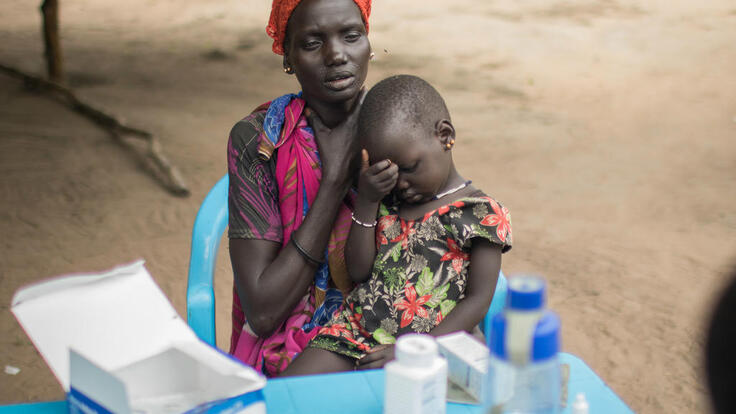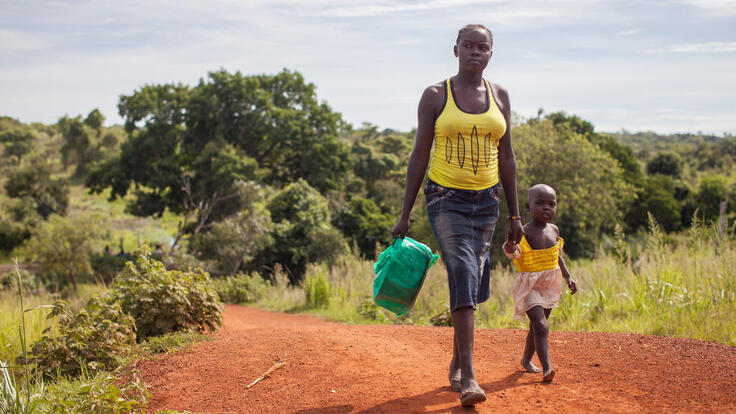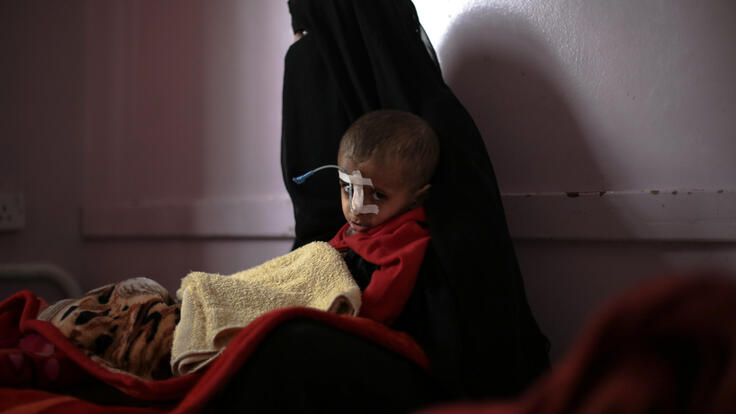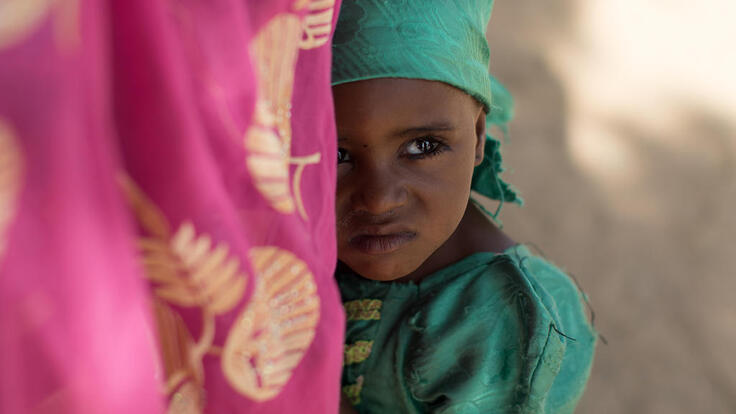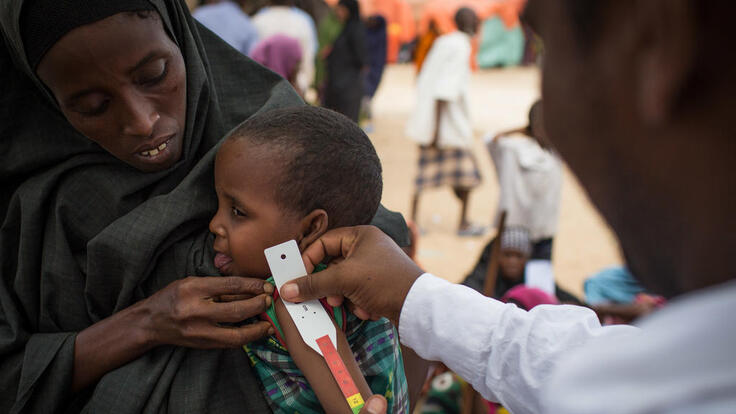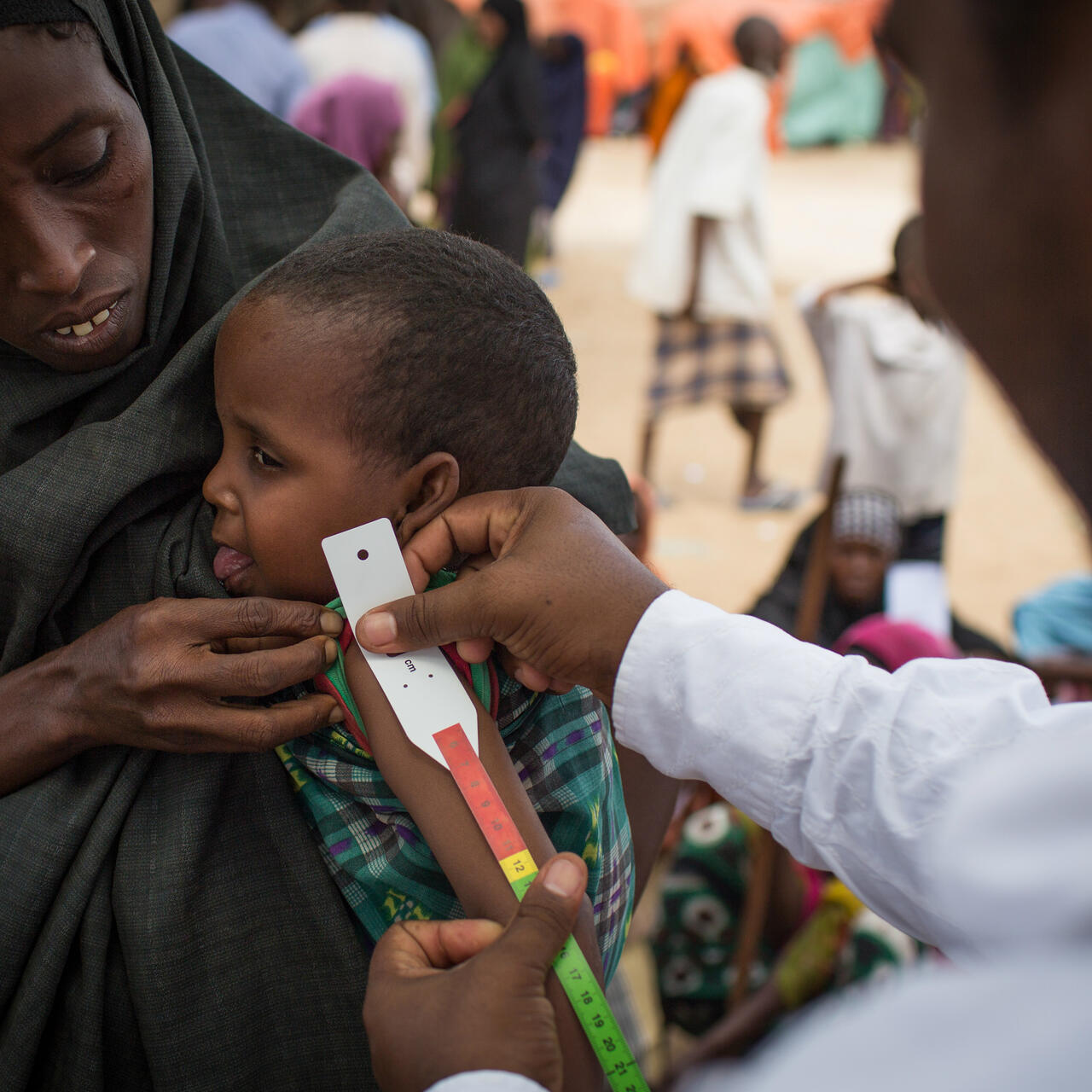
An independent public opinion poll commissioned by the International Rescue Committee (IRC) and conducted by SocialSphere, Inc. of Cambridge, MA, finds that Americans know the least about extreme hunger but find it to be the most important issue among those tested. Of all generations in the United States, millennials are the most concerned about solving the crisis.
"More than any other group of Americans, millennials recognize the severity of the hunger crisis and are ready to take on the responsibility of being members of a global community,” said David Miliband, president and CEO of the IRC. “In a world that is connected now more than ever, their values are guiding them to step up, and use their voices and their activism to call attention of all age groups to this crisis.”
The crisis
Twenty million people face extreme hunger in Yemen, Somalia, South Sudan, and Nigeria because of a deadly combination of drought and conflict. Drastic cuts to the United States foreign aid budget proposed by the Trump administration for 2018 could more than double the impact of famine.
"More than 20M are at risk of starving to death. Will the world step up?" Must-read @WashingtonPost editorial: https://t.co/Un2Aa46dkr
— IRC Intl Rescue Comm (@theIRC) July 18, 2017
The findings
Among the findings of the poll:
- Near-famine, which is affecting 20 million people in Africa and the Middle East, is likely the least reported but most important major issue of our time. While very few Americans are aware of the issue, once they are briefed on it, it immediately rises to a top global concern compared to five other global issues.
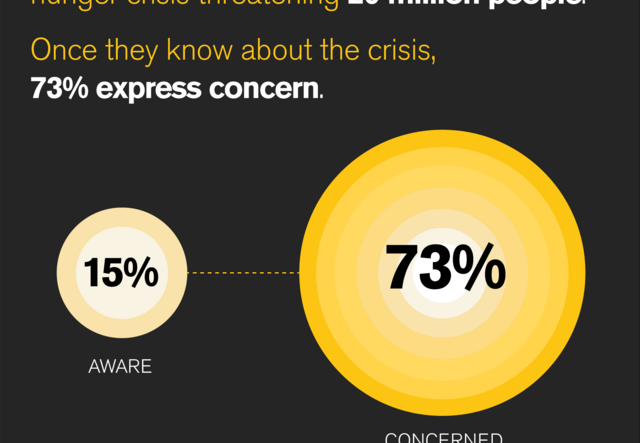
- Most registered voters agree that foreign aid from wealthy nations like the U.S. is needed now more than ever, especially since it is proven to help prevent disasters that would end up costing far more if neglected—like the Ebola outbreak in West Africa.
More than any other group of Americans, millennials recognize the severity of the hunger crisis and are ready to take on the responsibility of being members of a global community.
- Millennials see humanitarian aid as a defining issue for their generation and the U.S. While they are the only generation to believe the U.S. has a moral obligation to assist other people in need wherever they are, they understand famine is man-made and therefore solvable.
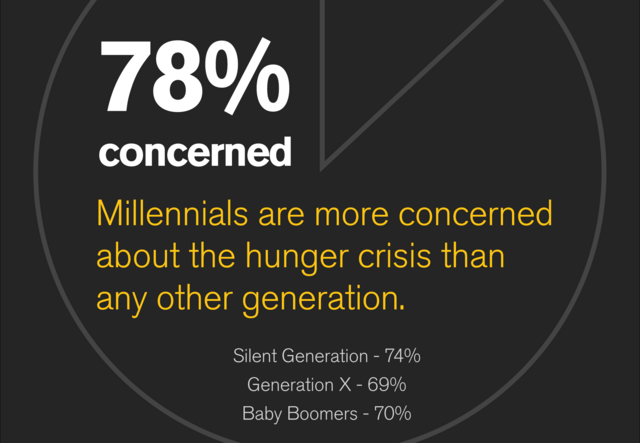
- With the travel ban’s imminent implementation, including a halting to refugees without “bona fide” U.S. ties, nearly half of registered voters know “a lot” about President Trump’s executive order restricting travel and immigration from Iraq, Iran, Libya, Somalia, Sudan, Syria and Yemen. This is the highest level of awareness among the issues measured in the poll.
How the IRC helps
The IRC is on the frontlines, continuing to scale up an emergency response in the hardest hit countries, but the situation is dire. We are raising the alarm that the proposed cuts to the FY18 U.S. foreign aid budget would have devastating consequences—including potentially doubling the number of people at risk of starvation. We are also calling on all G20 members to step up and take an active role in tackling the root causes of hunger to end this crisis.
How you can help
Make a tax-deductible donation today to support the IRC. We are providing emergency health care, nutrition support and other critical services to families who are struggling to survive in these crisis areas. Your gift will also assist us in our efforts to save lives around the world. Donate now.
